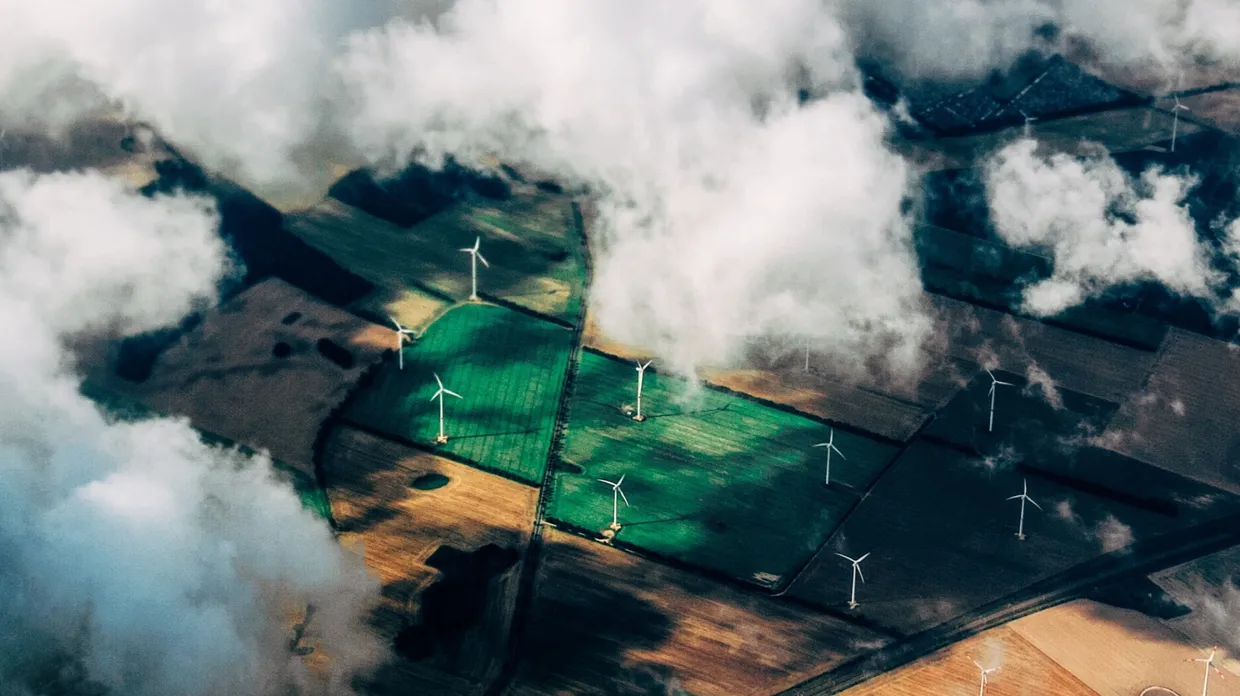In the face of a rapidly warming planet, the global call for action has never been more urgent.
Amid questions about the legitimacy of the UAE hosts, and about the real impact of global efforts to limit global warming, COP28 has unveiled some groundbreaking initiatives that aim to catalyze the fight against climate change. From innovative data services to collaborative financial frameworks, these developments are not just pledges for a distant future; they are actionable solutions for today. Against a backdrop of worrying temperature rises and extreme weather events that have a growing human cost, there are still solutions that can make a difference.
COPs always have a way of bringing new impetus to all of us involved in combating climate change. They bring together different points of view – which may or may not always be entirely helpful, but we can’t just stay stuck in a European bubble. By coming together, we can better understand the challenges, identify sticking points and tackle them in a more targeted way.
Here are my takeaways from COP28 which underscore our collective resolve to forge a sustainable tomorrow.
1. The Net-Zero Data Public Utility (NZDPU) Launch
The unveiling of the NZDPU by President Emmanuel Macron and former New York City Mayor Mike Bloomberg is a huge leap forward. Together, they put forward an open and centralized repository of climate transition-related data – and it’s more than just a tool. It’s transparency at its strongest and potentially the roadmap to net-zero. By providing open access to critical emissions data, the NZDPU empowers businesses and governments alike to make informed, impactful decisions that accelerate our journey towards a carbon-neutral economy.
I believe that the power of data will be the magic ingredient which permits us to move on from the era of indecisive COPs. Being able to visualise data masses, grouped by countries or by companies, will give more weight to the consolidated findings of scientists at a planetary level.
“Opening the books” will be key in 2024. Now that the world is getting on board with auditing figures and following the trajectory of emissions reductions, there’s nowhere to hide. Systems and analytical frameworks which offer the chance to compare value chains to their fullest extent, “apples for apples”, is a game changer – and will surely weigh on the decisions taken at future COPs.
Even if we know where the historic responsibility lies, being able to visualise, weigh, measure and expose them via technological platforms is the best way possible to spark action. It will focus minds and attention, change agent by change agent.
Transparency is absolutely key to better decision-making. To quote the European Commission President Ursula von der Leyen: “What gets measured, gets done”. Data enables us to achieve goals, to find applications for the private sector. It challenges inconsistencies, and leads to centralised, verified methodologies.
On the flip side, data gaps are barriers on our path to progress. We can improve the quality of the data, when we make it comparable from one source to another. And the better quality the data, the more actionable it is. For investors, this is huge because once you have good quality data, there’s no excuse not to price assets the right way.
2. Decarbonizing Supply Chains
Al Gore’s endorsement of a new tool to decarbonize supply chains is a perfect example of the power of network collaboration. With industry giants like Boeing, Tesla, and GM already signed on, this database isn’t just a collection of numbers; it’s a roadmap for change. By showcasing emissions with unprecedented clarity through the help of AI, it challenges companies to rethink their environmental footprint and paves the way for a greener industrial landscape.
3. Biodiversity & Data Announcements
COP28’s focus on data-driven conservation initiatives is a bold stride towards safeguarding Biodiversity, the lifeblood of our planet. The commitments made to integrate biodiversity metrics into climate action reflect a widespread realization that we need fact-based proof, and data-driven insights to protect our natural environment. These data announcements are more than just statements; they are the seeds of a movement to preserve plants, animals and microbes. The ultimate result is ensuring that people, our communities, have access to food, medicines, fresh air and water to live, and thrive, far into the future.
4. The Financial Sector’s Role in Climate Action
The financial sector was out in full force at COP28, underscoring a major truth: finance is the engine of climate action. It’s now a widely-acknowledged – and sobering – fact that $5 trillion will be needed each year to combat climate change. Convening world-leading economists and finance leaders to hammer out a new framework for international climate finance is about designing the future, from business to society. It also signals readiness to invest in a sustainable economy and demonstrates the financial sector’s crucial role in driving the green transition.
As French President Emmanuel Macron reminded us, the cost of capital today is bad for green investment aimed at phasing out carbon. Differentiated interest rates must be internalized into the financial markets.
The countries of the Global South can decide the direction of the entire world, given that they have energy needs to be met. Either we help and finance them, or we worsen the situation. It’s essential that we collectively find a global financial mechanism to phase out and de-risk in the first instance.
5. A “just transition”
My COP28 experience started at the Oceania pavilion. The different nations of the region – Tuvalu, Fiji, Vanuatu and many others – opened proceedings by inviting delegates to close their eyes in group prayer. For me, it was a reminder of how the world may well be coming together to hold back the rising tides, but generally speaking, we are closing our eyes.
These South Pacific nations are calling for financing to help them get out of their own fossil fuel dependency. Their essential aspiration is to transition to renewable energy sources on their own islands and get out of the vicious cycle of contributing to climate change themselves due to a simple lack of financial means.
The Pacific has been leading a call for bold positive progress on international laws. They are asking to be included in every platform now, not just COP. This includes finance platforms, and their fight must be taken into account within the human rights framework. This is the essence of the notion of a “just transition” – whichh is the only kind of transition we should aspire to achieve.
6. Women and climate change
I attended a session at the Women and Gender pavilion, about women on the frontlines of climate change. The realities are stark: When there is no food, women are all too often seen as being to blame. In many cases, they suffer violent consequences at home.
Climate change is also diminishing children’s access to education, which in turn lessens their earning potential and economic stability in the long run. To give one example from Kenya: during herd migrations, the men have to roam increasingly far from home to find food for their animals. This leaves women and children at home alone for longer, and they too have to travel further to find sustenance. The eldest children tend to be left in charge of the younger ones, meaning they miss out on their own schooling in the process. This lack of education becomes a lifelong impediment, not least because it makes it so much harder to navigate the world of banks and loans and obtain the first financial step into greater prosperity.
The catastrophic effects of climate change have much more direct impact on women too. Families which rely on women cultivating plants for herbal medicines suffer from the loss of these remedies when extreme weather events destroy their crops. Entire properties and livelihoods can be lost for good when women-owned lands are destroyed by cyclones or floods, as cultural norms in many regions mean that women are frequently barred from negotiating or buying property.
Women need international support to enter into inclusive dialogue following climate disasters. All too often, if communities are left to deal with the aftermath in isolation, historic norms mean that men take the decisions, and women’s voices go unheard. Inclusive decision-making is essential for the well-being of all.
On a related note, the loss and damage fund announced on the opening day of COP28 is a good mechanism to help climate-disadvantaged communities right now. But it is essential that it be backed up with good governance, good data, and good analysis, to ensure that women are not left behind.
As we stand at the crossroads of climate crisis and opportunity, the results of COP28 offer a glimpse of a brighter, more resilient future. Much of our future progress on combating climate change depends on harnessing the power of data. This starts with the financial sector and its influence on the way we run our businesses. Then, it’s up to the businesses to influence their supply chain. I am somewhat surprised by how little talk I heard at COP of climate stability being a common good. Too often we forget that it is a universally shared resource. With this in mind, it's the network that matters – a network we are creating today, so we can tackle climate change in the most collaborative way possible. Technology will help us get there. I am sure of it.




